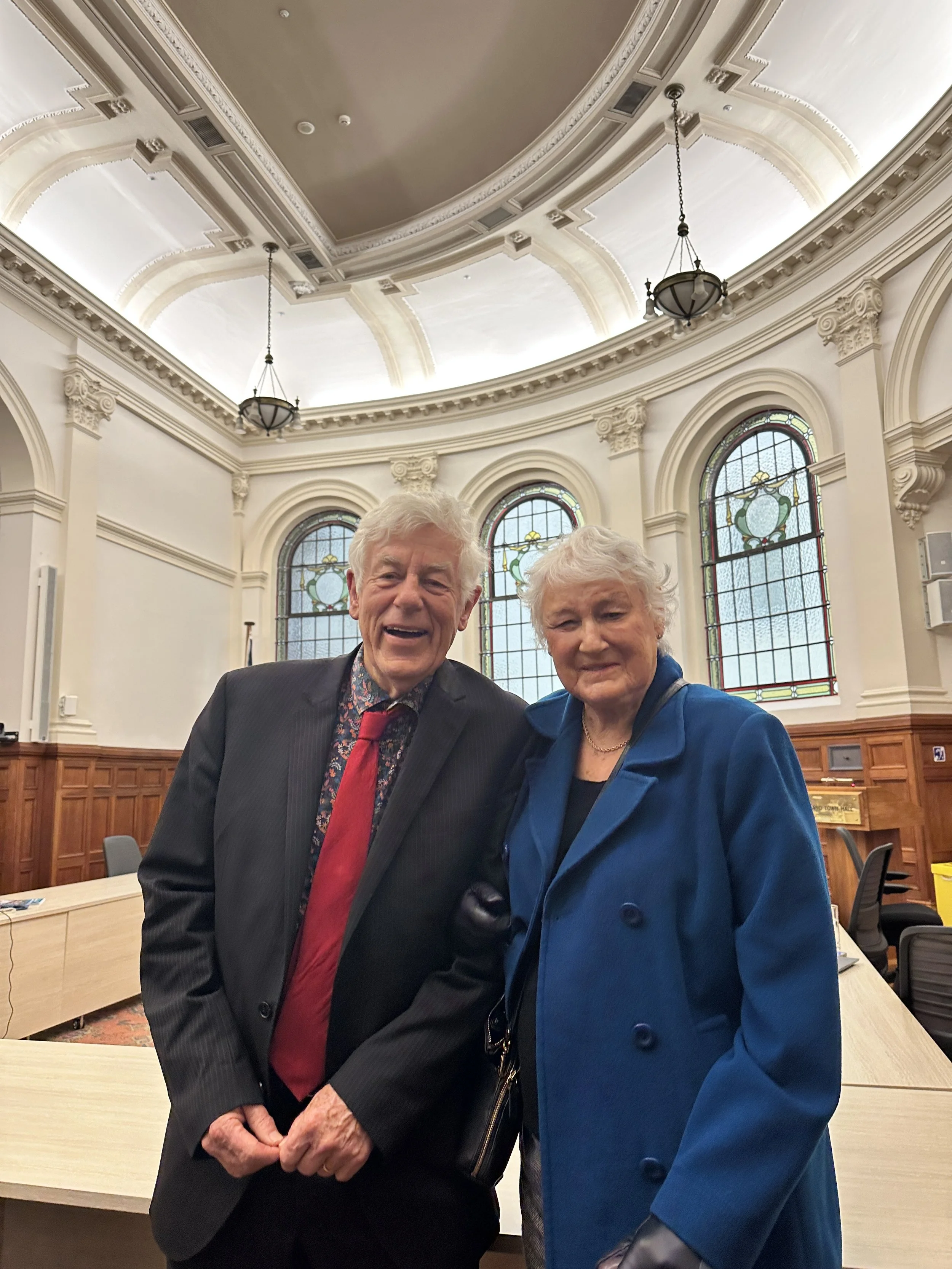Richard Northey’s Valedictory speech
Richard Northey addresses the Waitematā Local Board at his final meeting as an elected member.
This is my last meeting as an elected member. In mid-October I retire from the Waitemata Local Board after 38 years as an elected member. I have spent 9 years as a Member of Parliament, 17 years as an Auckland City Councillor after being elected in January 1979 on my fifth attempt, 3 years on the inaugural Auckland Council and 9 years as a Waitematā Local Board member.
I want to thank very much the people who have campaigned for, supported, befriended, advised and challenged me over those 46 years. My thanks also to all of the Council staff who have supported and advised me, to the great majority of the elected members who have worked with me, to my wife Robyn and to other members of my family.
During this time, I have helped achieve some visible results, including the Aotea Centre, the fine extensions to the Central Library and to the Art Gallery, creating Q Theatre, and Te Rimutahi / Ponsonby Park in Waitematā, and also great community facilities in Maungakiekie-Tamaki, including Te Oro. There are also some less visible achievements: the Disability Rights Policy I drafted when first elected in 1979, the Arts and Culture Policy and Annual Auckland Arts Festival, achieving recognised Age Friendly City status, adopting the International Convention on the Rights of Women on my motion, and becoming a City of Peace and a Child Friendly City.
My saddest failure is that after the former Auckland City Council sold all Council housing in Freemans Bay and throughout the city, in spite of my annual requests to the new Council, we have not returned to providing affordable housing in the Auckland isthmus again. This is in spite of the devastating housing crisis we face. Safe shelter is a vital human right and our legacy Councils had a proud record. Council leadership in housing provision must be restored.
As elected representatives we must respond at least as much to the needs and views of the communities of the future as to those of today. Under the Local Government Act, legally and morally we are obliged to do so. They have no vote or voice, but we must make the decisions that acknowledge and empower the sustainable wellbeing of our children and their children’s children.
Climate change presents a huge challenge, where we must act locally and are morally obligated to do our part in addressing an existential crisis. Some argue that we need not take action because China and India emit significantly more greenhouse gases than we do. Yet any Aucklander, on average, creates so much more emissions than an average person from those and other countries. We really must act to do our share for the sake of future generations.
The old patterns of urban sprawl and of cars occupying so much of our public space must be changed. Young people and families cannot be condemned to live isolated lives and be forced into a long, congested, petrol-fuelled commute to get to work, education, and fun. Planning and policies must build intensified, diverse, liveable, attractive, affordable inner suburban communities for all.
Those who claim we can hold rates while we still have major infrastructure deficits are in denial. The real opportunity for savings could come from coordinated, skilled project management and pipelining of major projects. Any billion-dollar overrun comes at the expense of no less than a hundred ten-million-dollar projects..
Inequity, poverty, lack of opportunity and homelessness are increasing in Auckland. Providing just the same programmes and opportunities, largely oriented to pale, hale, stale, male interests, is simply not equitable. We need to celebrate, embrace, and enable what provides joy, inclusion, and the appropriate development of their potential for Māori, all ethnic groups, and people of all ages, abilities, genders, sexual orientations, backgrounds, and locations.
As elected members in our governance role, we need to work to make the best decisions for our communities, not coming from anecdotes, but using researched evidence, proven scientific data, the expertise of our committed Council staff, the views of the broad spectrum of our communities and the policies and values we campaigned on.
Throughout my public life I done my very best to live my values. They include a belief in the equal and wonderful value of every human being. I seek equity, social fairness and full opportunity and access to develop their potential to the full, both for their own benefit and the gifts they can return for us all. We should fully respect and value the diverse characteristics and cultures of all kinds of people We should truly appreciate and protect the other life forms we share our world with. We need to recognise that it is co-operation, collaboration and mutual respect that are the most ethical and productive means of achieving success in the economy and in most vital aspects of life. Firm adherence to ethical principles is much the most certain way of arriving at truth and justice.
I wish my successors, whoever they may be, all the best in the future.
Richard and Robyn Northey


